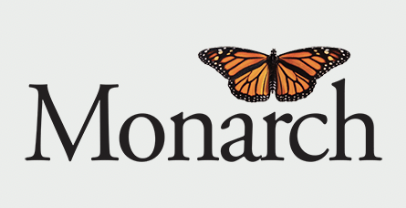Monarch


Overview
Monarch is a substance abuse treatment center for people seeking treatment near Wake County. As part of their treatment modalities for recovery, Monarch provides individual psychotherapy during treatment. Monarch is located in Wake Forest, North Carolina, accepting cash or self-payment for treatment.
Monarch at a Glance
Payment Options
- Cash or self-payment
- Medicaid
- Medicare
- State-financed health insurance plan other than Medicaid
- Private health insurance
Assessments
- Screening for tobacco use
- Comprehensive mental health assessment
- Screening for mental disorders
- Screening for substance use
- Comprehensive substance use assessment
Age Groups
- Seniors or older adults
- Young adults
- Children/adolescents
- Adults
- Seniors
Ancillary Services
- Mental health services
Accreditations
The Joint Commission:

The Joint Commission accreditation for addiction and behavioral health is a prestigious recognition signifying a facility's commitment to delivering high-quality care and safety for individuals dealing with substance abuse and mental health issues. It involves rigorous evaluations and assessments, ensuring patients receive evidence-based treatment and exceptional care. This accreditation demonstrates a facility's dedication to continuous improvement and ethical practices, building trust among patients and healthcare professionals seeking top-tier addiction and behavioral health services.
Treatment At Monarch

Conditions Treated
Alcoholism:
Alcohol addiction is a health problem where drinking takes control over a person's life. It affects how their brain thinks and acts, leading to strong desires to drink, bad feelings, sudden actions, and discomfort when not drinking. To help someone with this problem, there are treatments like detox, counseling, group support, and learning coping methods. While treatment can't completely cure the urge to drink, it helps people regain control of their lives and feel better overall.
Mental health treatment:
Mental health treatment provides a safe and structured environment where individuals can receive professional care and support for their mental health challenges. Within the facility, trained therapists, counselors, and medical staff work together to create personalized treatment plans tailored to each person's needs. Patients might participate in a variety of therapies, including individual counseling, group therapy, and possibly medication management. The goal is to equip individuals with the tools and strategies they need to cope with their conditions and lead fulfilling lives.
Substance use treatment:
Substance use rehabilitation is a structured program aimed at assisting individuals in overcoming their dependencies on drugs or alcohol. Through a combination of medical detoxification, counseling, and various therapeutic approaches, these programs strive to address the physical and psychological aspects of addiction. The goal is to equip individuals with the knowledge, skills, and support necessary to attain lasting sobriety, while also working to identify and address the underlying issues contributing to substance misuse. By fostering a supportive environment, substance use rehabilitation centers provide a pathway towards a healthier, substance-free life.
Co-occurring Disorders:
Dual-diagnosis rehabs are usually the appropriate solution to treat co-occurring mental health and substance abuse disorders. These facilities typically employ medical and behavioral experts who use a range of interventions, together with the right healing environment, for you to achieve and sustain long-term recovery. Treatment usually includes evidence-based therapies (like cognitive behavioral therapy), recovery support meetings, 12-step facilitation, psychoeducation, skills training, and group therapy.

Levels Of Care
Outpatient:
Outpatient treatment in a rehab center offers structured therapeutic services for individuals seeking recovery without full-time residential admission. Unlike intensive outpatient programs, which demand more frequent and longer sessions, standard outpatient care provides a more flexible approach, allowing participants to maintain daily activities and responsibilities while undergoing treatment.
Regular outpatient treatment:
Regular Outpatient Treatment typically involves scheduled therapy sessions that occur on a part-time basis, allowing individuals to receive the necessary support and guidance while maintaining their daily routines. These outpatient sessions are generally held multiple times a week, with the exact frequency tailored to the individual's needs and progress. The number of sessions per week can vary, but it commonly ranges from two to five sessions, providing a flexible and effective approach to addiction recovery and mental health treatment.

Treatment Modalities
Individual psychotherapy:
Individual therapy, often referred to as psychotherapy or counseling, is a one-on-one therapeutic interaction between a trained therapist and a client. It provides a confidential space for individuals to explore their feelings, beliefs, and behaviors, working through challenging memories, experiences, or emotions. The therapist facilitates self-awareness, promotes personal growth and insight, and offers coping strategies to manage specific issues like stress, anxiety, depression, and other life challenges. The ultimate goal is to improve the individual's mental well-being and enhance their overall quality of life.
Cognitive behavioral therapy:
Cognitive Behavioral Therapy (CBT) is a widely practiced form of psychotherapy that seeks to address dysfunctional emotions, behaviors, and thoughts through a goal-oriented, systematic process. It encourages individuals to challenge distorted cognitions and change destructive patterns of behavior by promoting self-awareness and effective coping strategies. CBT is often used to treat a range of disorders including anxiety, depression, and stress, making it a versatile and practical therapeutic approach. Through enhancing an individual's capacity to manage life's challenges, CBT contributes to improved mental well-being and overall quality of life.
Dialectical behavior therapy:
Dialectical Behavior Therapy (DBT) for addiction treatment is a comprehensive cognitive-behavioral approach initially developed to treat individuals with borderline personality disorder. Adapted for addiction, DBT emphasizes the development of four core skills: mindfulness, emotion regulation, distress tolerance, and interpersonal effectiveness. Through individual and group sessions, patients learn to understand their triggers, manage negative emotions, cope with cravings, and improve relationships, all of which contribute to long-term recovery and reduced substance use.
Telemedicine/telehealth therapy:
Telehealth Therapy is a remote care option that allows individuals to access mental health services via digital technology, such as secure video conferencing. This mode enables patients to engage with therapists from their homes, offering flexibility and overcoming geographical limitations. Ideal for those in rural areas, with mobility issues, or tight schedules, Telehealth Therapy ensures quality mental health support is always within reach.
Substance use disorder counseling:
Substance use disorder counseling treatment modalities refer to various approaches and methods used in the counseling and treatment of individuals with substance use problems. This can include individual therapy, group therapy, cognitive behavioral therapy, motivational interviewing, family therapy, and 12-step programs. The goal is to help the individual overcome their substance use, develop healthy coping skills, and lead a fulfilling life in recovery.
Smoking/vaping/tobacco cessation counseling:
Vaping Cessation Counseling is a specialized form of support designed to help individuals overcome their dependence on electronic cigarettes or vaping products. Through evidence-based strategies, personalized advice, and emotional support, counselors guide individuals towards a nicotine-free life, emphasizing the long-term health benefits of cessation.
Treatment for gambling disorder:
Treatment for Gambling Disorder is a targeted approach to help those with compulsive gambling habits regain control. It involves therapies like CBT, financial counseling, and support groups to promote healthier behaviors and financial stability, enabling individuals to overcome their addiction and lead fulfilling lives.
Group counseling:
Group Counseling is a therapeutic approach where individuals come together under the guidance of a trained counselor to share experiences, provide mutual support, and gain insights. It fosters a sense of community, promotes understanding through diverse perspectives, and offers personal growth and problem-solving strategies.
Family counseling:
Family counseling is a therapeutic approach that addresses the dynamics, interactions, and challenges within a family unit. Through guided discussions and interventions, a trained counselor helps family members understand one another, resolve conflicts, improve communication, and strengthen their bonds. This form of therapy can be beneficial for families facing transitions, stressors, or behavioral issues, promoting understanding and facilitating positive change in the familial environment.
Motivational interviewing:
Motivational Interviewing (MI) in addiction treatment is a client-centered counseling approach designed to enhance an individual's intrinsic motivation to change. By addressing ambivalence and tapping into personal values, MI fosters meaningful conversations about substance use and promotes commitment to recovery-focused goals.
Anger management:
Anger Management is a therapeutic approach aimed at helping individuals recognize the triggers and signs of their anger and teaching them effective ways to calm down and deal with the situations in a positive manner. Through a blend of counseling, cognitive-behavioral therapy, and practical skill development, individuals learn to reduce aggressive responses, improve communication, and enhance interpersonal relationships, contributing to a better quality of life.
Abnormal involuntary movement scale:
The "Abnormal Involuntary Movement Scale" (AIMS) is a tool rated by clinicians to gauge the occurrence and intensity of involuntary motions, typically linked to specific medications. It is widely used to assess tardive dyskinesia in patients taking antipsychotic medications.
Treatment for other addiction disorder:
Treatment for other addiction disorders typically involve a combination of therapy and medication. This may include individual therapy, group therapy, and behavioral therapy. Medications may be prescribed to help manage symptoms and reduce cravings. Additionally, support groups and aftercare programs can be beneficial in maintaining recovery and preventing relapse. The treatment modality should be tailored to the individual's specific needs and circumstances.
Ancillary Services
Languages
- Sign language services for the deaf and hard of hearing
Additional Services
- Pharmacotherapies administered during treatment
- Discharge Planning
- Drug or alcohol urine screening
Special Programs
- Clients with co-occurring mental and substance use disorders
- Children/adolescents with serious emotional disturbance (SED)
- Persons 18 and older with serious mental illness (SMI)
Contact Information
DISCLAIMER: The facility name, logo and brand are the property and registered trademarks of Monarch, and are being used for identification and informational purposes only. Use of these names, logos and brands shall not imply endorsement. BetterAddictionCare.com is not affiliated with or sponsored by Monarch.

